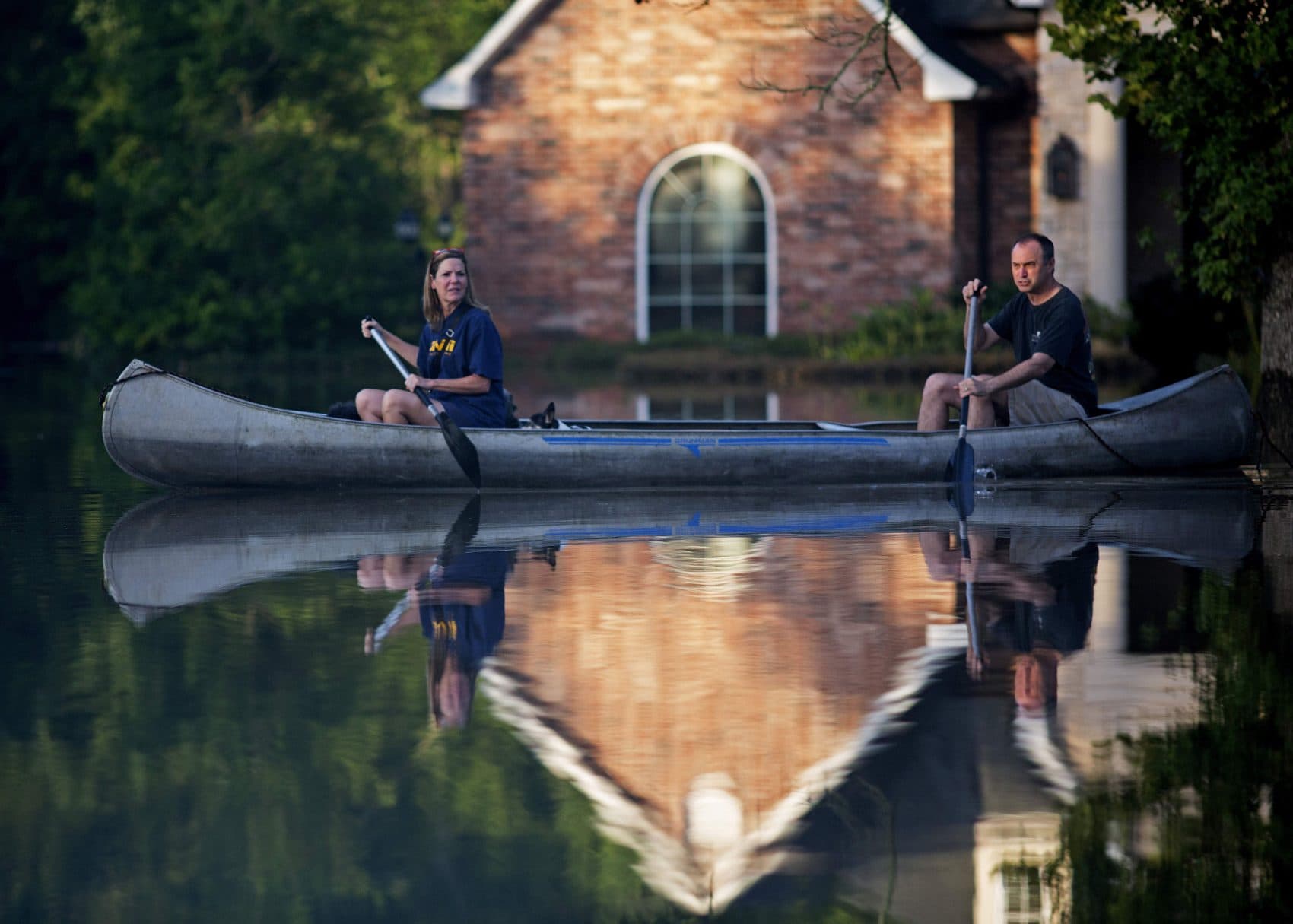Advertisement
Trump's Toxic Threat: Obliviousness To Climate Change, Even In His Backyard

One of the largely unrecognized dangers of Donald Trump’s slash-and-burn presidential campaign is that his many outrageous statements are causing us to lose sight of the very real threat he poses to our shared environment -- to the air we breathe, the water that sustains us, the land where we live and work.
Trump has long been dismissive of environmental regulation, and recently, he told a reporter that he didn't think climate change would be that "devastating." (He previously put the word out that climate change is a hoax devised by the Chinese, though he later, in a now familiar move, dismissed this as a “joke.”). Perhaps Trump’s recent visit to southern Louisiana, where thousands have been displaced by deadly flooding, will convince him that climate change is no joke. There seems little doubt that catastrophic floods are increasing in frequency and are directly related to atmospheric warming. Still, Trump seems strangely immune to the human cost of climate change -- even when the evidence is right in front of him. In 2012, Trump took to Twitter to lampoon the impacts of global warming on Hurricane Sandy’s flood victims. This summer, he didn’t seem to notice the millions affected by climate change in his own backyard.
Perhaps Trump’s recent visit to southern Louisiana, where thousands have been displaced by deadly flooding, will convince him that climate change is no joke.
Perhaps Trump has not noticed the foul-smelling green goo that has slimed summer beaches near his Mar-a-Lago mansion estate in Palm Beach County, but the impact it’s having on the very type of small businesses he purports to champion is devastating indeed. This summer the algal bloom was so severe that in July Florida's governor declared a state of emergency in four southern counties: Martin, St. Lucie, Lee and Palm Beach.
It is too soon to tally the economic impact of this disaster, but the summer tourist trade was almost nonexistent in affected areas. Fish kills piled up on the shorelines, compounding the algal stench that kept kids from playing on the beaches this summer. Facebook friends cataloged their despair, with a video of a family trying to save an algae-choked manatee going viral. Restaurant and hotel workers suffered wage losses as beaches and businesses closed, while health costs soared as vulnerable populations, such as the elderly, suffered respiratory and gastrointestinal ailments related to the toxic blooms.
This tragic scenario can be directly linked to the failure to enact and enforce sound environmental policies, exacerbated by climate change. Algal blooms are associated with nutrient-enriched waters, such as runoff from agricultural fields and fertilized yards. Moreover, scientific evidence suggests that climate change is affecting the frequency and intensity of algal blooms, with warmer waters expanding the range of certain algal species. Fishing communities, which have long struggled to maintain their livelihoods, have experienced repeated closures due to algal blooms, mainly red tide outbreaks.
The high cost of homeowner's insurance has made home ownership inaccessible to the very working class families Trump claims he wants to help.
This is just the latest climate-related blow to the Sunshine State. It comes amidst growing concern about Florida's vulnerability to rising sea levels, also linked to climate change. Miami has the unwelcome distinction of often being identified as the "number one" port city in the world at risk for property damage as sea levels rise. Other cities, such as adjacent Miami Beach, are already dealing with extensive flood-related damage to property. Throughout the United States, densely populated coastal communities are highly vulnerable to climate change, as families in Louisiana know all too well.
Unlike Trump, the insurance industry is well aware of the increasing risk of storms and other hazards as reflected in skyrocketing premiums. Florida’s insurance premiums are the highest in the nation, more than double the national average, and they continue to rise. For example, wind-storm insurance for an older, least-expensive home in Miami-Dade County, where I grew up, costs about $326 per month. To put this in perspective, one third of all families in the county made less than $25,000 in 2013. Needless to say, the high cost of homeowner's insurance has made homeownership inaccessible to the very working class families Trump claims he wants to help. This means Florida is becoming a state of renters and the underinsured — the groups least able to recover after a major disaster, as researchers found after Hurricane Andrew.
To be sure, the impacts of climate change may not seem that "devastating" from the air-conditioned recesses of Mar-a-Lago. Yet in this country, as in the rest of the world, families whose livelihoods depend on fishing, farming, and harvesting are increasingly vulnerable, as is anyone scraping to get by. We need presidential leadership that recognizes the ways environmental change and economic vulnerability are colliding, with terrible consequences. Climate change is very real. It’s already claiming victims.
